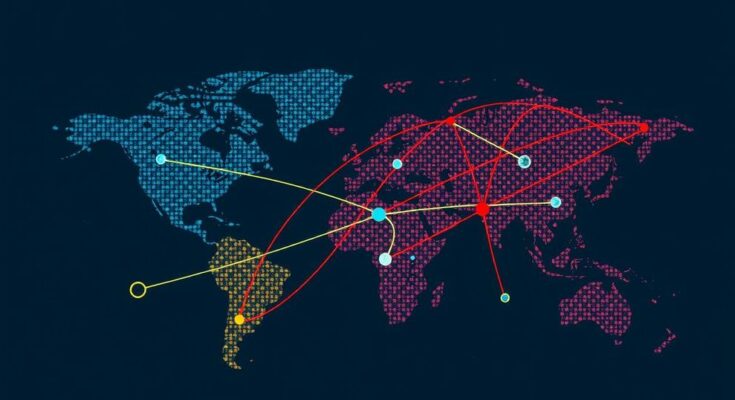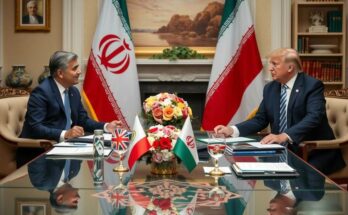The re-election of Donald Trump could signify a departure from US-led globalization, urging an independent approach to global cooperation. The G20 summit’s relevance is questioned amidst this shift, while Brics emerges as a counterpoint, advocating for a more inclusive global economic order. Initiatives like the Belt and Road Initiative emphasize the growing influence of non-Western powers like China in reshaping international relations.
The potential re-election of former President Donald Trump may signify a transformative shift away from US-led globalization, challenging the established Western-centric international order. As global challenges intensify, there is a pressing need for international cooperation that transcends American leadership, advocating for a globalization 2.0 framework that acknowledges diverse global perspectives. This is particularly relevant in light of the recent G20 summit and the competitive emergence of Brics as a counterbalance to traditional Western alliances.
During the G20 summit, held in Brazil, significant discussions occurred among world leaders, including US President Joe Biden, but much of the dialogue was overshadowed by the implications of Trump’s political future. Trump’s administration has historically exhibited skepticism towards multilateral agreements, contributing to the G20’s perceived ineffectiveness in adapting to the shifting global dynamics. The formation of Brics has emerged as a response to these limitations, offering a new avenue for countries within the Global South to assert their influence and redefine international economic relationships.
The Brics summit in Kazan, Russia, emphasized the commitment to improving connectivity among its members and advocating for a global economy that is fair and inclusive. Additionally, initiatives like the Chancay Port, part of China’s Belt and Road Initiative, demonstrate a concerted effort to enhance economic integration, especially within the Asia-Pacific region. While some Western analysts express concerns about the implications of these strategies for global security, they underscore a broader paradigm shift in international relations, wherein non-Western countries are gaining prominence in shaping both economic and geopolitical landscapes.
The concept of globalization has traditionally been dominated by Western nations, particularly the United States, which has set the framework for international policies and economic strategies. However, the growing discontent with this Western-centric approach has led to the formation of alternative platforms such as Brics, comprising Brazil, Russia, India, China, and South Africa. These nations have articulated a desire for a more equitable and inclusive global economic order that reflects the evolving geopolitical landscape, particularly regarding the needs and aspirations of developing countries. The Belt and Road Initiative further illustrates China’s aim to foster stronger global ties and economic cooperation outside the established frameworks led by the West.
In summary, Trump’s potential re-election may herald a new phase of global politics characterized by diminishing US influence and an increased emphasis on alternative collaborative frameworks. The ongoing developments within Brics and initiatives like the Belt and Road Initiative represent a significant challenge to the longstanding US-led global order. As nations adapt to these changing dynamics, it becomes crucial for the international community to forge new paths of engagement that prioritize inclusivity and equitable growth.
Original Source: www.scmp.com




